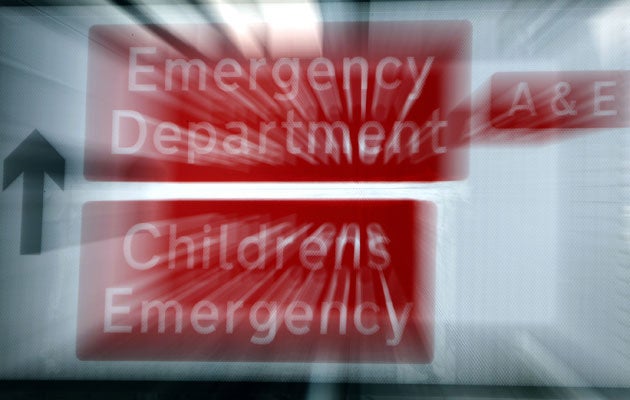
Your support helps us to tell the story
From reproductive rights to climate change to Big Tech, The Independent is on the ground when the story is developing. Whether it's investigating the financials of Elon Musk's pro-Trump PAC or producing our latest documentary, 'The A Word', which shines a light on the American women fighting for reproductive rights, we know how important it is to parse out the facts from the messaging.
At such a critical moment in US history, we need reporters on the ground. Your donation allows us to keep sending journalists to speak to both sides of the story.
The Independent is trusted by Americans across the entire political spectrum. And unlike many other quality news outlets, we choose not to lock Americans out of our reporting and analysis with paywalls. We believe quality journalism should be available to everyone, paid for by those who can afford it.
Your support makes all the difference.
What courses? Nursing; adult nursing; children nursing; European nursing; learning disability nursing; mental health nursing; midwifery; nursing studies; occupational therapy.
What do you come out with? Either a BNurs or BSc, depending on the institution, and students can choose to study a Nursing Diploma. At the end of a degree you also qualify for professional registration.
Why do it? If you want to make a difference to someone’s life, then nursing is up your street. You have to be caring but tough, and know how to deal with people and their problems. However, doing a degree rather than a diploma means that you have a head start on the promotion ladder. Graduates leave with excellent problem solving, management and presentation skills along with a strong knowledge of patient care in their chosen specialism.
What's it all about? It really depends on which branch you choose, but either way, nursing is a vocational programme with fantastic career opportunities. All universities with nursing degrees offer pathways in adult nursing, child nursing, learning disabilities and mental health nursing. In the first year students on all branches follow the same introductory programme on the theoretical basis for nursing, drawing on a range of theories from the behavioural, social and biological sciences. In the second and third year students tend to follow a fixed programme that includes a series of practical placements to complement the academic theory they study through the year. At Edinburgh, students’ knowledge of biology, nursing and illness are also developed to facilitate the understanding of complex clinical situations. One of the many benefits of working in a health centre is gaining experience in primary care, which also encompasses specific branches such as maternity, children and mental health.
Study options: Generally three years. King’s offer a two year nursing diploma for graduates while Sheffield offers the option of a part-time course over four or seven years. If you are studying in Scotland, the course is four years. There is a 50:50 split between the practical and the academic aspects of the course. Many of the courses are modular and options are dependent on the specialised pathway that students choose. Owing to the highly practical nature of the course, assessment is generally continuous, using methods such as coursework, project and portfolios. Exams do still play a part, with, for example, a third of the course assessed by written exam at Birmingham.
What will I need to do it? Most universities are flexible. However, Edinburgh asks for maths and science at A Level. Biology and chemistry are preferred at Queens, but not essential. Grade-wise, at Manchester BBC, Edinburgh BBB (or BBBB at Higher, which should include maths and a foreign language), while Queens requires BC/CCD (if chemistry and biology are offered; BB/CCC if not). King’s require three A levels and one AS level, at BBB/C.
What are my job prospects? Great. The graduate employment percentage is around 95 per cent at most institutions. You are just what the government ordered and your local hospital needs you. Almost all graduates will go straight into nursing employment. Some will choose to be ward or district nurses, others aim for more specialist nursing areas and become clinical specialists or nurse consultants. A small number continue with further study. Students tend to continue working in the area where they studied initially, having made contacts through placements conducted whilst on the course. According to The Times’ Good University Guide 2012, 90 per cent of graduates walk straight into graduate jobs, with an average starting salary of £21,911.
Where’s best to do it? Edinburgh came top in the Complete University Guide 2012, followed by York, Southampton and Manchester. Students at Glasgow, Liverpool and Edinburgh were most satisfied with their courses however.
Related courses: Medicine; health and social care; dentistry; osteopathy; veterinary studies.
Join our commenting forum
Join thought-provoking conversations, follow other Independent readers and see their replies
Comments